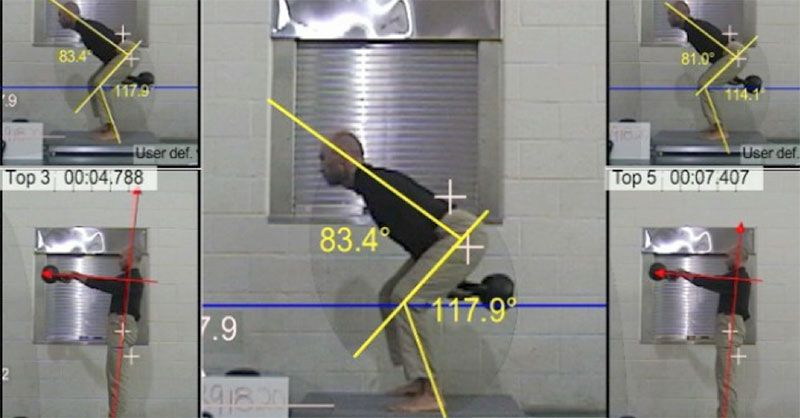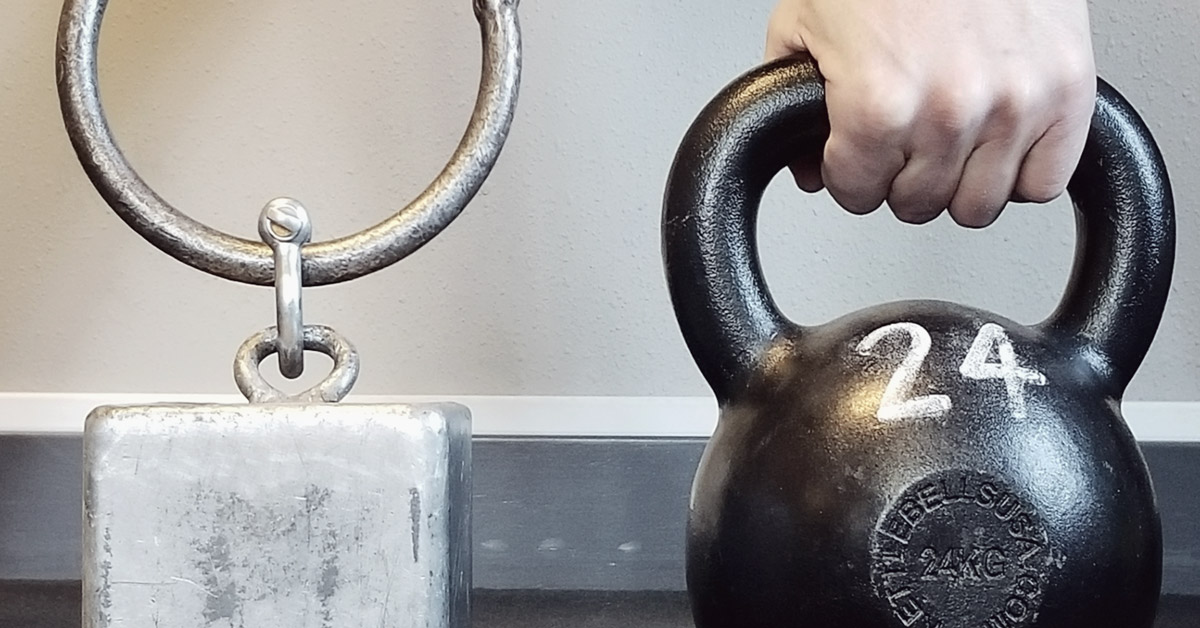Naturally, the 48 kg is more difficult.
But whether it's actually generating more *power* than the 32 kg bell is hard to know without instrumentation and measuring.
For me, when I've measured using PUSH:
--For dead-stop cleans from the floor straight to rack position (no back swing), my power output scales up to my max 2 x 40 kg bells
--For swings, my power output peaks at 2 x 32 kg bells. 2 x 36 or 2 x 40 generate less power, for me, because the acceleration is declining faster than the weight is increasing.
So in my case, 2 x 36 or 2 x 40 swings are definitely more difficult than 2 x 32, but they're not more powerful.
This means that 2 x 40 kg is a "fast grind" for me, not a power training tool.
Is there a reason for me to do a "fast grind" with a kettlebell?
I'm not sure there is. I could get analogous results by doing high reps of 80+ kg Romanian Deadlifts with a barbell, but it's more time efficient to just go heavier than that.


